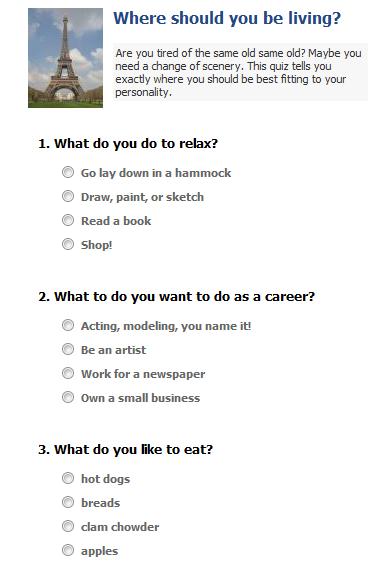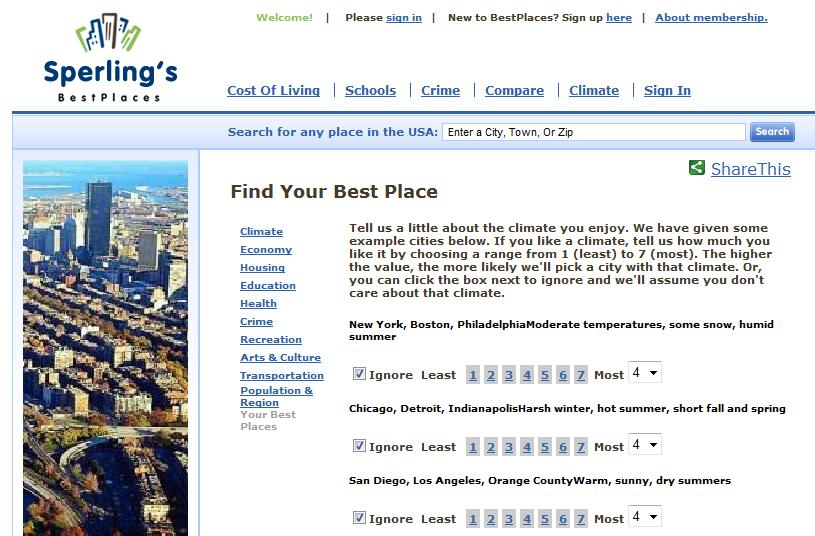
If you’re on Facebook — and with more than 175 million users, chances are, you’ve at least signed up — you’ve probably seen the latest wave of quizzes flying around. What painting would you be, which one of the Beatles would you be, what’s your sixth sense, I think there’s even one called “which theologian would you be?” I’m not sure I can name a theologian, so they could say almost anything and I couldn’t argue.
The quiz I’ve seen popping up the most is “Where should you be living?” At first I thought the only answer the quiz could spit out was New York City, because it seemed that was the result all my friends were posting to their profiles.
Then I started to see “Seattle,” “Italy” and “the country” — because apparently different people get different levels of specificity.
I took the quiz and didn’t like the way the choices were set up. I can’t enjoy laying in a hammock *and* reading a book? I can either like apples *or* bread? It just didn’t make much sense to me.
But I do think there’s value in thinking about where you’d most like to live. Along with choosing your mate, choosing your hometown is one of the most significant choices you can make. It affects how you’ll live and the kind of people you’ll socialize with, the kinds of hobbies you might have and the type of home you’ll live in.
I like the Places Rated quiz better. Of course the Facebook quiz is just for fun. Places Rated is for real. It evaluates hundreds of cities on scales of climate, culture, housing, economy and more, then asks you to weight each of those factors against each other — which matters more to you: a short commute or low crime? Which matters more: outdoor recreation or low housing costs?
Then you indicate which regions of the country you’d consider — you can rule out whole sections like the Pacific Northwest, or pick state by state if you have preferences about places you do or don’t like.
Based on your preferences, it gives you a list of cities that best match your priorities in the geographic boundries you specified.
If you’re considering relocating, it can help narrow down that big U.S. map into a few places to explore first.


There's no place like home, wherever that is
